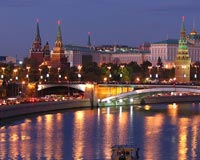Building sheds on the frontier of the eastern European industrial market was always going to come with challenges for Raven Russia. The latest one comes in the form of the crisis in Ukraine. So far, Anton Bilton’s AIM-listed company, which owns 15m sq ft of industrial and logistics space in Moscow, St Petersburg and Siberia, has weathered the storm. It saw NAV climb by 5% to $1.30 per share in H1, while rents rose from $87.4m to $97.8m.
But as political uncertainty drags on and the Russian economy edges closer to recession, can the firm continue to sidestep any commercial consequences?
Undeterred by events of the past six months, which have included a referendum on the sovereignty of eastern Ukraine in May and border skirmishes, the group continues to pursue an ambitious development pipeline: a total of 1.2m ?sq ft of Moscow industrial and logistics space is due to come online by the end of 2014.
The investor and developer has already prelet 50% of new stock currently under construction in Moscow, while its existing portfolio is 97% let. A recent note by analysts at stockbroker N1 Singer said: “Rent is collected, leases signed, financing negotiated and drawn” – despite the ongoing uncertainty.
Although the uncertainty may not – yet – have had any commercial consequences for Raven Russia, international sanctions and political volatility have ?hit the Russian economy hard; the Economist Intelligence ?Unit had predicted 2% growth for 2014, but has since revised this to just 0.4%.
And US and European sanctions against Russian individuals close to the Kremlin and state-backed industrial and banking groups have led to a freeze on Western investment in the country.
Consumer spending has also faltered, because of the slowing economy and rising inflation – currently running at 7.6% – and this has hit international brands operating in the country. Heineken and Carlsberg issued profit warnings for their Russian and eastern European businesses in August because of a slump in Russian consumer spending.
Raven Russia leans heavily on the retail sector in terms of its tenant mix. The portfolio is only 29% directly let to retailers, including French giant Auchan and Russia’s x5 Retail Group. But the lion’s share is let mostly to distribution and manufacturing tenants, whose fortunes are linked to retail and therefore consumer spending.
Developer Glyn Hirsch, who co-founded Raven Russia with property mogul Bilton in 2005, is sanguine. He says: “If anything, we have seen retailers stockpiling goods – one tenant imports chocolate and had built up a huge reserve before Russia launched its countersanctions.”
The former CLS Holdings chief executive adds: “As for inflation, this is something the Russian economy has always struggled with, but we think the portfolio can withstand it.”
Another challenge for Russia’s real estate and construction industry is constrained access ?to finance, with local banks badly affected by sanctions, says the EIU.
But this is one area where Raven Russia has relatively little to worry about, having secured a raft of new loans and refinancings this year. This led to a small reduction in its cost of debt, at 7.4% at the end of June compared with 7.2% at this time last year.
A sudden case of oversupply in the Moscow sheds market, where about 50% of Raven Russia’s stock is located, is another potential risk factor.
There was 18.3m sq ft of new warehouse space under construction in Moscow at the end of H1 2014, compared with only 10.8m sq ft of live requirements, according to research from CBRE.
“There has historically been an undersupply of warehousing in Moscow, so developers became optimistic,” says Valentin Gavrilov, director in CBRE’s Moscow research team. “But then the geopolitical situation happened. Demand could fall by 20% this year due to the economic situation. Retailers have cut back on aggressive expansion plans for Russia, so developers may be left with high vacancy rates in the short term.”
However, the market could correct itself by the end of 2016, says Gavrilov, as constrained financing and economic uncertainty mean developers are likely to put further projects on hold for the coming years – leading to a balance between supply and demand over time.
sophia.furber@estatesgazette.com











